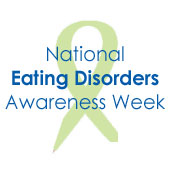In fight against obesity, graduate counseling program emphasizes holistic health
Open gallery

First Lady Michelle Obama has made fighting childhood obesity her signature cause, but some experts worry that her campaign walks a fine line between fighting obesity and promoting eating disorders.
Jacqueline Abbott, coordinator of the eating disorders certification program curriculum at Lewis & Clark and a clinical practitioner, has worked with many young, formerly obese people who lost alarming amounts of weight through dieting techniques that reinforced unhealthy relationships with food.
“Adolescents are particularly susceptible to harmful messages about food and weight in a society that endlessly praises weight loss,” Abbott said. “The goal is the health and well being of children, and health encompasses many factors besides weight.
According to the National Eating Disorder Association, as many as 10 million females and 1 million males in the United States are fighting a life-and-death battle with an eating disorder such as anorexia or bulimia. Approximately 15 million more are struggling with binge-eating disorders.
Despite the unprecedented growth of eating disorders in the past two decades, professionals in the mental health, medical, and nutrition fields continue to be underprepared for diagnosing and treating the disorder. National Eating Disorders Awareness Week, February 20-26, offers an opportunity for practitioners and the public to reflect on this national struggle.
Lewis & Clark Graduate School of Education and Counseling is at the forefront of an effort to better prepare professionals who come into contact with those battling eating disorders. Lewis & Clark offers one of only three graduate certification programs in the country that lead to certification from the International Association of Eating Disorders. These programs are preparing professionals to identify and work with those experiencing eating disorders, as well as a collection of other addiction and co-occurring mental health related issues.
“Eating disorders are probably the least diagnosed and treated problem common to emerging adults, and it’s vital that a new generations of clinicians are trained and prepared to effectively work with such issues,” said Boyd Pidcock, associate professor of counseling psychology and director for the addictions studies program, which is home to the eating disorder certificate program.
While eating disorders are not comparable to other addictions, Abbott points out that they can manifest similar symptoms that require highly trained professionals.
“People who suffer with eating disorders, like some who struggle with addictions, grapple with anxiety, depression, obsessive compulsive disorder features, and feelings of loss of control,” Abbott said. “Lewis & Clark’s curriculum follows guidelines established by professional organizations such as the American Psychological Association, and we provide a comprehensive education to our students that addresses the psychological, social, nutritional, and medical aspects of eating disorders.”
As part of the program’s ongoing effort to raise awareness about eating disorders and strengthen the professional capacity in the field of mental health clinicians, dieticians, medical doctors, and others working with youth, the Lewis & Clark Addiction Studies program will host the Columbia River Eating Disorder Network 14th annual conference on February 26.
Nearly 100 professionals from Oregon and Washington will gather to learn about the benefits of equine therapy in treating disordered eating, to discuss symptoms and treatment resources for female athletes suffering from the mental illness, and to attend a presentation by nationally recognized psychiatrist Kathryn Zerbe on the connections between obesity and eating disorders.
In addition, Lewis & Clark students in the eating disorder certification program will conduct educational outreach across the region for Eating Disorder Awareness Week in an effort to educate parents and youth about the symptoms of disordered eating and how to get help.
“Lewis & Clark is pleased to be collaborating with leading experts and national professional organizations to support efforts at early intervention and successful treatment options that will benefit so many young people and adults,” Abbott said.
Public Relations is located in McAfee on the Undergraduate Campus.
MSC: 19
email public@lclark.edu
voice 503-768-7970
Public Relations
Lewis & Clark
615 S. Palatine Hill Road MSC 19
Portland OR 97219

